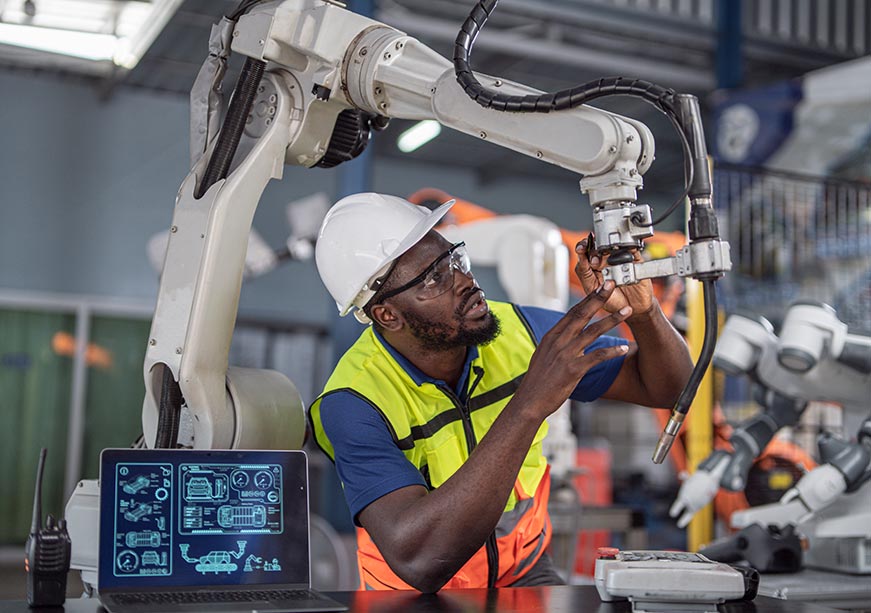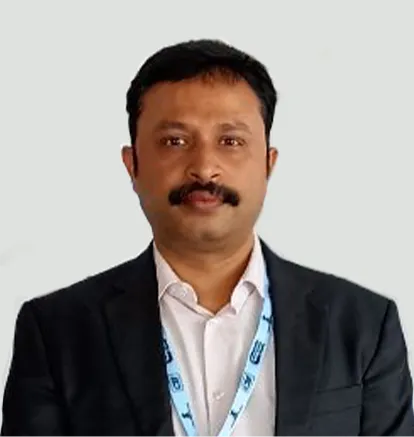-
CENTRES
Progammes & Centres
Location
Africa can learn from the Indian diaspora’s global success in fostering social, cultural, and economic progress

Image Source: Getty
Africa can learn from the Indian diaspora’s global success in fostering social, cultural, and economic progress. By harnessing the entrepreneurial spirit of their own diaspora, African countries can drive economic growth and advance Sustainable Development Goals. Modern economies rely on scientific and engineering research for growth. In today’s interconnected world, diaspora communities, including those from India, play crucial roles in global politics. About 30 million Africans, many with advanced degrees and entrepreneurial skills, now live abroad, contributing to sectors like finance, IT, and agriculture to support their host countries’ development. Many actively advocate for policies to improve Africa’s future through political engagement and charitable efforts.
According to the UN’s World Migration Report 2022, India had the most significant number of citizens living abroad, with over 18 million Indians making a significant global impact. For example, with a median household income of about US$150,000 annually, Indian immigrants make the most money among any migrant group in the United States (US). In Australia, the average annual household income for Indian migrants is about US$87,000, while the average family income for Chinese migrants in the US is approximately US$58,000.
About 30 million Africans, many with advanced degrees and entrepreneurial skills, now live abroad, contributing to sectors like finance, IT, and agriculture to support their host countries’ development.
About 1.4 billion people live in 54 African nations, with projections of 2.5 billion in 25 to 30 years. This growth raises questions about energy, climate change, and food security. The article explores India’s strategy in leveraging its diaspora for scientific advancement and considers how African nations can learn from this approach to utilise their own diaspora professionals for development.
Sadly, the contribution to scientific advancement of both government and private researchers in Africa remains bare minimum due to inadequate funding from African governments. This limits opportunities for ambitious research. To enhance their scientific output, Africa must foster collaborations with local and global partners and engage with the African STEM diaspora. Additionally, private sector businesses should connect with African STEM researchers who have developed innovations in fields like chemical production, medical devices, vaccines, and pharmaceuticals, which can help tackle challenges in Africa and beyond.
In other words, Africa needs a strategy to effectively promote its discoveries and innovations. Expanding research for commercial purposes would be advantageous, encouraging those who left the continent in search of STEM opportunities to return and collaborate. This strategy might open up new economic opportunities for the middle class, which is expanding and has a higher amount of disposable income.
Private sector businesses should connect with African STEM researchers who have developed innovations in fields like chemical production, medical devices, vaccines, and pharmaceuticals, which can help tackle challenges in Africa and beyond.
Global corporations like IBM, Nestlé, and Google have established research and development centres in key African nations, recognising the importance of fostering local innovation. For example, Google has an AI research facility in Ghana, and IBM operates centres in South Africa and Kenya. Many of these companies have also hired diaspora professionals to leverage both local and global expertise. However, significant untapped potential remains, and Africa can learn from India’s experience in this area.
Strengthening connections with the Indian diaspora has become a key aspect of India’s foreign policy under Prime Minister Narendra Modi. Acknowledging the diaspora’s potential, the Indian government offers tax exemptions and other incentives to those who return to start businesses. Notable examples include Wipro and Reliance Industries, both founded or led by diaspora returnees.
Recent advancements in sciences have strengthened India’s ties with its diaspora, thanks to professionals educated in Western institutions who returned with valuable knowledge and skills. This strategy proved especially effective during the pandemic, making India the world’s leading vaccine producer. African governments should take note of this approach.
Furthermore, the government has introduced the Vaishvik Bhartiya Vaigyanik (VAIBHAV) fellowship programme to connect academic and research institutions with the scientific diaspora. This initiative aims to deepen ties with the diaspora by promoting best practices, knowledge exchange, and collaborative research in cutting-edge science and technology, thereby enhancing the research ecosystem in India’s educational institutions.
The VAIBHAV fellows will soon connect with Indian academic institutions to develop a collaborative network focused on advanced research in priority areas set by the Indian government.
Under the Ministry of Science and Technology, the fellowship program aims to support 75 distinguished scientists and technicians of Indian descent (NRI/OCI/PIO) conducting research in their home countries. The program covers 18 key areas, including quantum technology, health, and agriculture. After reviewing 302 applications, the Apex Committee recommended 22 VAIBHAV Fellows and two distinguished VAIBHAV Fellows.
The VAIBHAV fellows will soon connect with Indian academic institutions to develop a collaborative network focused on advanced research in priority areas set by the Indian government. They will address key concerns through joint research and share best practices. The fellowship covers travel, accommodation, contingencies, and a monthly grant of INR 400,000 (US$5000) for up to three years. Each fellow can choose an Indian institution for collaboration and dedicate up to two months annually over three years to the project.
Over the past few decades, technological advancements have allowed significant growth in the IT sector in developed countries, benefiting local communities and boosting tax revenue. Many have found jobs as programmers, product managers, and analysts in multinational corporations. Africa can replicate this success by supporting its domestic IT companies, whether they stem from lab innovations, startups, or academic projects. This approach would create more job opportunities for Africans, particularly new graduates.
With a projected population of 2.5 billion in the next 25 years, Africa must develop innovative solutions grounded in science and engineering while valuing the expertise of its global community.
Furthermore, Africa can build a strong knowledge economy by engaging its diaspora in science and technology, enhancing its global soft power. This collaboration should yield financial support, technical assistance, and the sharing of ideas. As the continent faces significant challenges in the coming decades, leveraging the diaspora as a powerful resource is crucial. With a projected population of 2.5 billion in the next 25 years, Africa must develop innovative solutions grounded in science and engineering while valuing the expertise of its global community.
Africa can learn from the Indian diaspora’s global success in fostering social, cultural, and economic progress. By harnessing the entrepreneurial spirit of their own diaspora, African countries can drive economic growth and advance Sustainable Development Goals. African countries should collaborate with their skilled diasporas to conduct scientific research and accomplish their objectives, taking inspiration from the Indian diaspora’s history of creating prosperous economies and transforming cultures.
Samir Bhattacharya is an Associate Fellow at the Observer Research Foundation
The views expressed above belong to the author(s). ORF research and analyses now available on Telegram! Click here to access our curated content — blogs, longforms and interviews.

Samir Bhattacharya is an Associate Fellow at ORF where he works on geopolitics with particular reference to Africa in the changing global order. He has a ...
Read More +